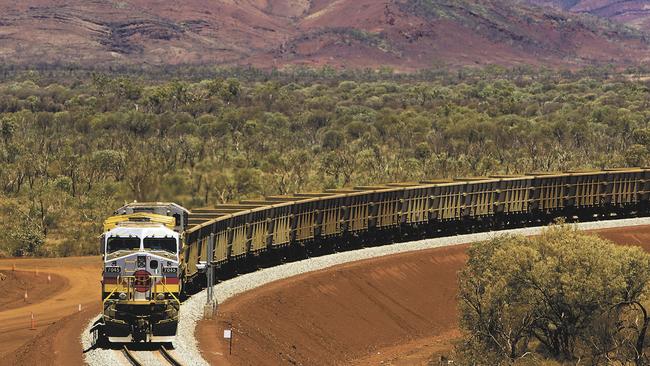Hundreds of jobs at risk as Rio Tinto scales back long-running rail contract
Hundreds of jobs are at risk following Rio Tinto’s scaling back of a long-running Pilbara rail maintenance contract.

Hundreds of jobs are under a cloud after mining giant Rio Tinto scaled back one of the Pilbara’s longest-running contracts.
Contracting heavyweight Fluor has had its contract to maintain Rio Tinto’s (RIO) enormous Pilbara heavy haul railway slashed back, leaving the jobs of rail maintenance workers employed by Fluor in jeopardy.
A spokesman for Rio Tinto confirmed the move.
“Rio Tinto regularly assesses the performance of contractors across the business. Following a recent review of our rail maintenance contractor, Fluor Rail Services, Rio Tinto has decided to reduce the scope of their work,” the spokesman said.
“We will be going to market to ensure future rail maintenance requirements are delivered. We are unable to provide any additional comment on commercial matters.”
Pilbara sources said as many as 400 workers could be affected by the move, although it is understood the final figure will be less than that. Rio Tinto declined to specify how many jobs would be impacted.
There will likely be an opportunity for affected workers to apply for jobs with the contractor that ultimately replaces Fluor, given the specialised nature of the maintenance work.
The change could also open the door for a local contractor to replace US-headquartered Fluor as part of Rio’s efforts to increase its local procurement efforts.
According to Fluor’s website, it has been providing track maintenance, construction and replacement and maintenance of track machines for Rio Tinto since 1968. That would make the contract one of if not the oldest in the Pilbara, given iron ore mining only started in the region in 1966.
“Fluor has rightfully earned a reputation for providing a safe, rewarding work environment and supporting programs that improve the quality of life for people in the area,” Fluor’s website says.
“Fluor looks forward to continuing this longstanding relationship well into the company’s next 100 years.”
Rio Tinto’s rail network has emerged as the key bottleneck of its world-leading iron ore operations in recent years.
Those issues have primarily emerged as a result of efforts to introduce its automated AutoHaul rail system, although Rio Tinto’s iron ore boss Chris Salisbury mentioned rail maintenance as a potential issue when speaking at the company’s investor day last month.
“We have been rail-constrained for much of this year, a bottleneck we need to eliminate completely. While 2017 maintenance work has reduced some restrictions, ongoing work is required in 2018 to improve overall asset condition and prepare for future optimum productivity, including the increased tonnes from AutoHaul and other productivity increases,” Mr Salisbury said at the time.
“We want to increase rail capacity to be greater than both port and mines, which will enable the system to have extra sprint capacity ... This requires improved rail maintenance, a range of productivity improvements, extra rolling stock, and of course, the full operation of AutoHaul.”
The company used the investor day to announce plans to pump another $US200 million ($247m) into a productivity overhaul of the rail network that would lift its capacity to more than 360 million tonnes a year.
The ongoing efforts to turn around the rail network will limit the Pilbara iron ore operation’s output this year to between 330 million and 340 million tonnes.





To join the conversation, please log in. Don't have an account? Register
Join the conversation, you are commenting as Logout